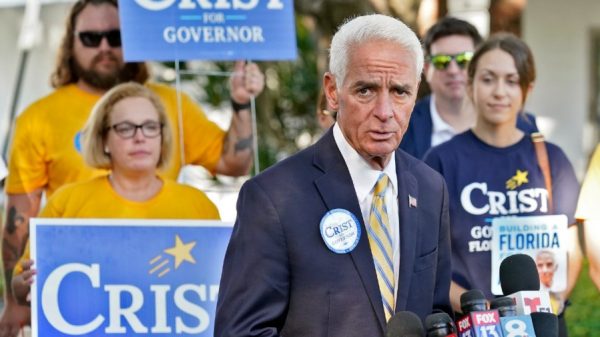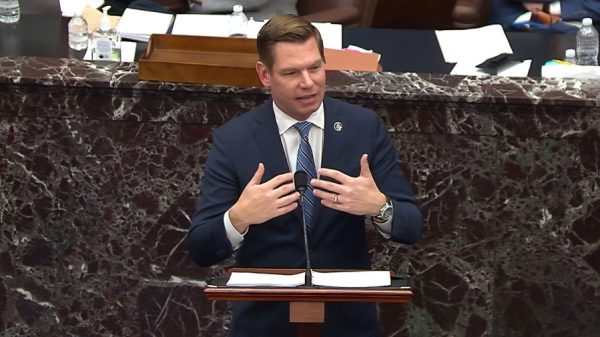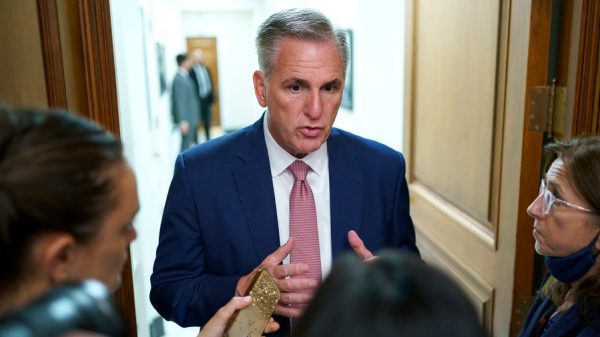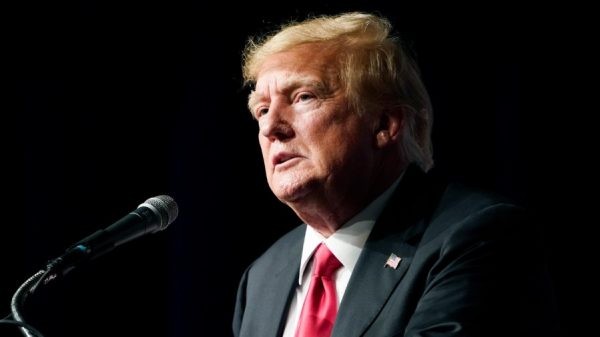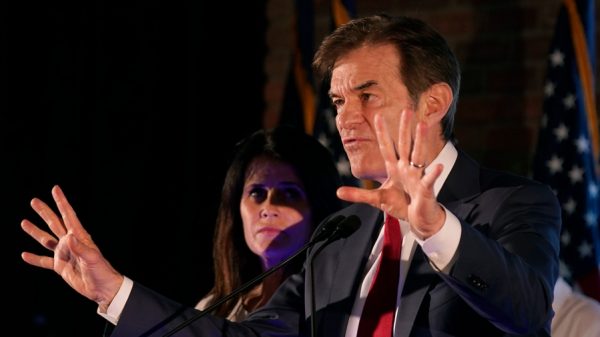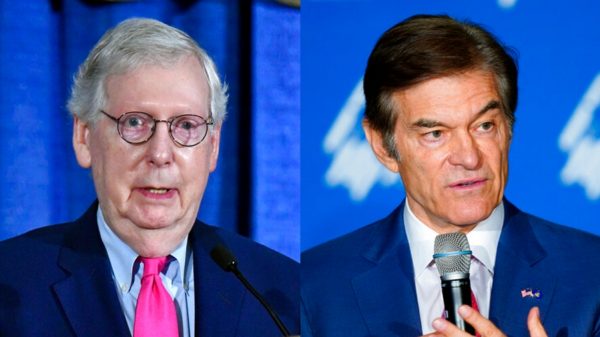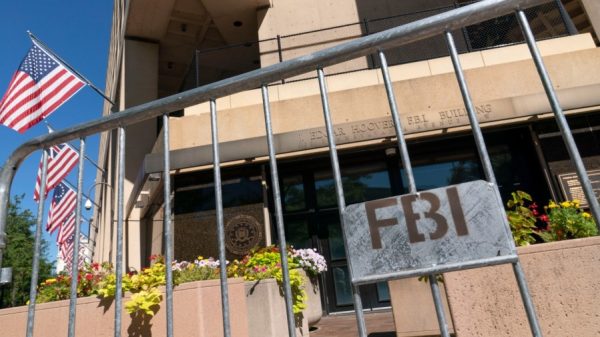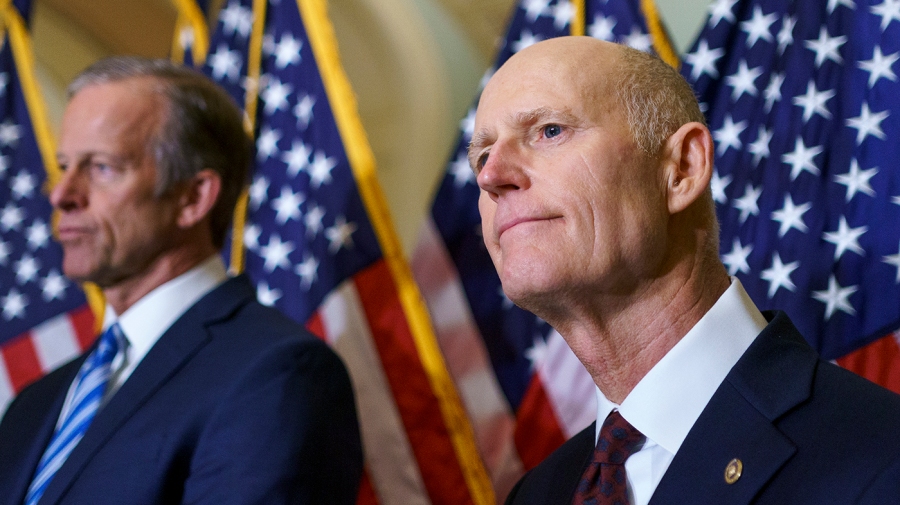Republicans are looking to manage expectations when it comes to winning back the Senate majority in November as Democrats rack up key legislative wins and some GOP candidates stumble.
National Republican Senatorial Campaign (NRSC) Committee Chairman Rick Scott (R-Fla.) on Sunday acknowledged that it’s “going to be a hard year.”
“We have 21 Republicans up, only 14 Democrats,” he said on CBS’s “Face the Nation.” “The Democrats are outraising us, but we have good candidates. And I believe Joe Biden is going to be our key here.”
Senate Minority Leader Mitch McConnell last week also sought to manage expectations.
“I think it’s going to be very tight. We have a 50-50 nation. And I think when this Senate race smoke clears, we’re likely to have a very, very close Senate still, with us up slightly or the Democrats up slightly,” McConnell said Wednesday evening on Fox’s “Special Report.”
While neither Republican leader is conceding the upper chamber — Scott, in the same interview, said he was “optimistic” — the tone stands in contrast to the confidence Republicans were expressing about the Senate earlier this year, as well as the near certainty felt within the GOP of retaking the House.
“There’s been a lot of curtain-measuring on the House sid,e and if Republicans take back the House but it’s by a small margin and they manage to hold onto the Senate even if it’s by one vote, that could cast how we view the election,” said veteran Republican strategist Doug Heye.
“We’ve seen the expectations game played a lot in Washington, and I think Scott is mindful of that, and depending on where expectations get set you could have a good night that’s defined as a bad night,” he added.
The comments come as Democratic hopes of gaining seats in the upper chamber are growing. Democrats just passed their climate, tax and health care bill, dubbed the Inflation Reduction Act, a major piece of President Biden’s agenda. That followed bipartisan passage of a measure to increase semiconductor manufacturing and competitiveness with China, as well as a bill to expand health care for veterans.
Additionally, the overwhelming rejection of an anti-abortion ballot measure in Kansas points to an electorate energized by the fall of Roe v. Wade.
And Republicans are grappling with a handful of controversial Senate candidates struggling in the polls in key swing states.
In Pennsylvania, Republican Senate nominee Mehmet Oz continues to trail Lt. Gov. John Fetterman (D) in a number of polls, while Georgia GOP Senate nominee Herschel Walker has had to grapple with various scandalous headlines. Out west, meanwhile, Democrats have employed a strategy of hitting Arizona GOP Senate nominee Blake Masters and Nevada GOP Senate nominee Adam Laxalt over their views on the 2020 presidential election.
The election forecaster FiveThirtyEight currently has Democrats “slightly favored” to win the Senate. Sen. Gary Peters (D-Mich.), who leads the Democratic Senate campaign arm, said earlier this year that his goal is a 52-seat majority after the midterms.
But Republicans are still running in a national environment that appears to be tilted in their favor, given the state of the economy and the historical trend of a first term president’s party losing seats during their first midterm election cycle. And many within the GOP are pushing back on the idea that its prospects in the Senate are in real trouble.
“Joe Biden won Pennsylvania by a point and a half,” said one Republican using that state as an example. “You don’t think just the national ambience and environment has moved a couple of points against him?”
Chris Hartline, communications director at the NRSC, also shot down the idea the Senate is lost.
“I think that what the chairman said yesterday is not that it’s going to be hard for us to take back the Senate but that the races are tough races, which they were always going to be,” Hartline said. “A lot of these are in races that Biden won by a small margin.”
Some Republican strategists have expressed frustrations over what they say is a flawed recruitment and spending operation, something Democrats have tried to zero in on.
“There’s no bigger tell that Senate Republicans are saddled with a roster of deeply flawed candidates than the fact that the head of their campaign arm squirms like a fish out of water when asked to try and defend them,” said Democratic Senatorial Campaign Committees spokesman Eli Cousin. “Sunday shows should book Rick Scott every weekend.”
Others, however, contend that primary voters ultimately choose their nominees. Scott on Sunday, responding to a question about Walker and Masters, said “the voters in those states would choose in those states who they want.”
Over the past week, Democrats have been highlighting a number of key wins for Biden and the party.
“Everything that they have been successful at doing in recent days, in recent weeks is just going to further drive that contrast,” said one Democratic operative. “We are already going to be talking about candidate on candidate when it comes to a race like Georgia. We’re going to be talking about how Sen. Warnock has been working to lower costs, and taking on gas prices and taking on big corporations.”
But Republicans are quick to argue that the recent wins for Democrats, particularly the Inflation Reduction Act, will not translate into victories come November.
“It’s pretty commonly agreed to that it actually doesn’t do anything about that, which is the No. 1 issue in the country,” Heye said, referring to inflation.
Another Republican strategist referred to the act as “an Orwellian fib to cut a bunch of block grants to environmental nonprofits.”
“There is a Democratic spin machine that is not anchored in any reality,” the strategist said.
Hartline described Democratic messaging on the victories as “living in an alternate universe.”
And despite the recent wins for Democrats, polling shows that voters are still unhappy with the status quo. An ABC News-Ipsos poll released on Sunday found that 69 percent of Americans say they believe the economy is getting worse, while 18 percent of those surveyed believe that the U.S. economy has remained the same.
The poll did show a few bright spots for Democrats, with 34 percent of respondents saying they approve of Biden’s handling of gas prices. That’s up seven points from a similar poll released in June. Additionally, 49 percent of respondents also said they will favor a candidate who supports keeping abortions legal, which would bode well for the party.
“Every single Senate Republican who’s up for reelection is going to now have to defend the fact that they just voted against capping the cost of insulin for folks on private insurance at 35 bucks,” the Democratic operative said, referring to Republican votes against the Inflation Reduction Act. “That’s an incredibly popular policy that they just voted against, so I can tell you right now you’re going to see that in advertising.”
If Republicans do lose the Senate on election night, a blame game will almost certainly commence immediately. Tensions have emerged between former President Trump and the party establishment over Trump’s backing of candidates that others have been leery of and his repeated criticism of McConnell.
But GOP strategists argue the buck ultimately stops with the voters.
“Of course you’re always going to have palace intrigue and internal politics and all of that,” Heye said. “The persons responsible are those candidates that didn’t do what they needed to do, the voters who voted for them but didn’t turn out enough. These are decisions that are made in the states. Washington can help but still that’s where it falls.”











